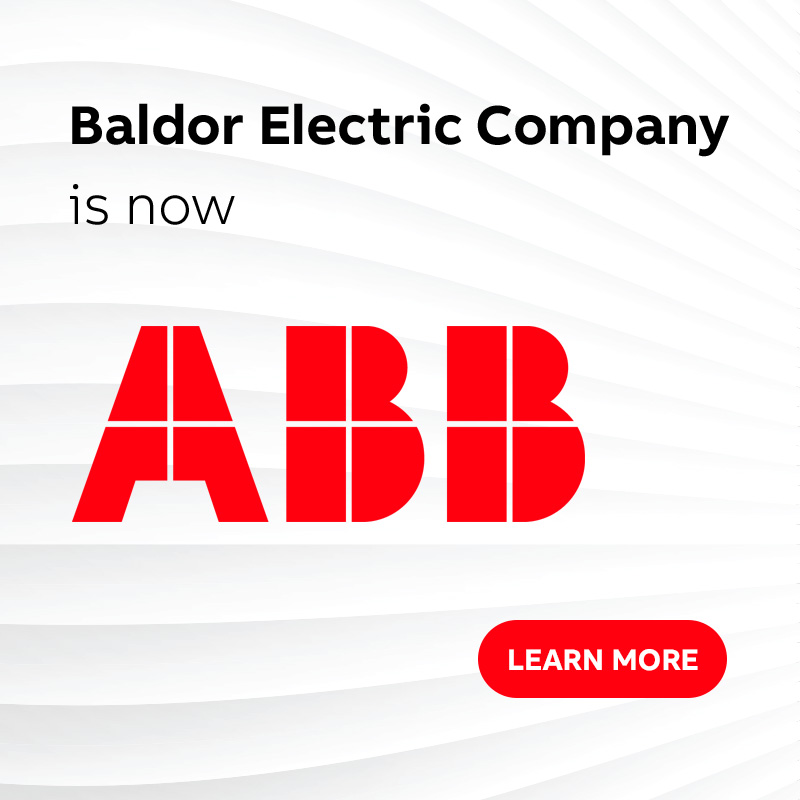
Detail
What is a washdown duty motor?
A washdown duty motor operates like any other electric motor; however, it is designed specifically to operate in wet and humid environments. When designing a washdown motor, water ingress and corrosion protection are at the forefront of the design. To combat water ingress, a combination of seals, gaskets, O-rings and sealers are used.
The two main points in which water can get into a motor are the conduit box/frame junction, and where the shaft extension exits the endplate. To stop water from getting into the conduit box, a neoprene gasket is used. The neoprene gasket ensures a watertight seal, keeping the winding and winding connections free of corrosion and potential shorts. Next, the focus turns to stopping water that might get into the motor between the motor shaft extension and the endplate. Protection is enhanced by adding a contact lip seal and v-ring slinger to the shaft end of the motor. The case of the lip seal presses into the drive endplate, and the sealing edge of the lip seal rides on a machined surface on the shaft extension. The v-ring slinger rides on the shaft diameter and rotates to sling water and contaminates away from the shaft opening. The lip seal and v-ring slinger work together to provide a watertight seal, mitigating the risk of water getting into the motor.
To prevent corrosion on the external components of these motors, the external hardware and shaft extension are made of 300-series stainless steel for strength and corrosion resistance. For the harshest applications, ABB offers paint-free, full stainless motors, polished to 125 microns that can be cleaned with high spray and caustic solutions. ABB also offers washdown motors coated with white two-part epoxy that is five times more resistant to chipping than standard paint systems. To address the internal components of the motors, rotors are coated with a two-part epoxy primer to mitigate the risk of corrosion. These value-added features ensure that the exterior and interior components of the motors are protected and will provide a long corrosion-free life. The standard bearings in most general-purpose motors are of an open design, which means there is nothing protecting the components of the bearing (grease, cage and balls) from external contaminates other than being housed inside of the motor endplates. In most general-purpose applications, this system is adequate and provides all the protection the bearing needs to operate effectively for the life of the motor. However, in a washdown application, an extra layer of protection is added by using double-sealed bearings. These bearings have an integral seal on each side of the bearing that protects the grease from contamination. This enhancement ensures that the bearings of the washdown motors are protected from water and contamination to ensure that the motor will be able to stay in operation without bearing failures, providing a long, maintenance-free, life.
When selecting a washdown product for any application, it’s critical to match the level of protection to the application. The National Sanitation Foundation (NSF) is an organization that is dedicated to protecting and improving global human health. The NSF has developed a system for dividing food processing plants into three different zones of exposure.
Zone 3 – dry zone, no food contact
Zone 2 – washdown, splash zone
Zone 1 – sanitation zone food contact
Every zone has its own unique set of challenges, but ABB offers a Baldor-Reliance motor solution for every zone.
Zone 3 motors are outside the washdown area; therefore, they do not require any special ingress protection, which makes the Baldor-Reliance general purpose product line a great fit for these applications.
In a Zone 2 application, the motors will not have direct contact with the food product. However, they will be exposed to splashing liquids used in the production process, and this could potentially spread bacteria and contaminate the food supply. The motor solutions from ABB for Zone 2 applications are white washdown motors and our paint-free motors.
In a Zone 1 application, the motors will likely be exposed directly to the food product. These motors will be sanitized frequently with caustic solutions, high-pressure and high-temperature water. Some applications in this zone will require a motor that meets an ingress protection rating of IP69, while other applications will only require an IP56 rating. All-stainless non-encapsulated motors are the best choice for IP56 applications, and for IP69 applications, Baldor-Reliance Food Safe motors offer the best protection against corrosion and water ingress.
No matter what level of protection you need in your washdown application; ABB has you covered.
If you enjoy this content, check the authors and topics that interest you, and click subscribe!
